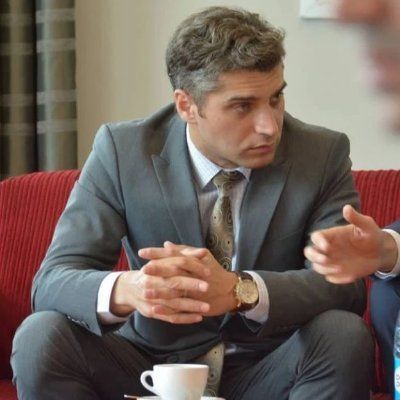Washington Summit marks historic opportunity for lasting Baku-Yerevan peace [ANALYSIS]
![Washington Summit marks historic opportunity for lasting Baku-Yerevan peace [ANALYSIS]](https://www.azernews.az/media/2025/08/08/add_a_subheading_1_1.png)
At long last, the protracted issue of Azerbaijan–Armenia relations, one of the most entrenched conflicts in the South Caucasus, stands on the brink of resolution, with a historic summit about to take place in Washington DC. Significantly, it will occur with the direct participation of the 47th President of the United States, Donald Trump, who is now serving his second term. This moment can be described not only as historic, but also as a potentially decisive milestone for the future of the region. The outcome of this meeting could lead to the permanent closure of unresolved matters that have festered for over thirty years and dramatically reshape the geo-economic architecture of the South Caucasus.
Many may recall the landmark meeting in 2001, mediated by former US President George W. Bush, between the late national leader of Azerbaijan, Heydar Aliyev, and Armenia’s then-president Robert Kocharyan. Today, the President of Azerbaijan, Ilham Aliyev, participating in this new summit as the leader of a proud and victorious nation, has travelled across the Atlantic with the aim of unlocking the long-sealed doors of peace in the South Caucasus.
There is no need to look too far back to see how far the peace process has come. One need only remember the previous US administration’s attempt to involve itself in the peace talks. During the US administration under the Democrats, efforts to support peace were presented with sincerity on the surface, but were ultimately undermined by deeply biased, anti-Azerbaijani positions taken by Congress. The Biden administration’s overtly pro-Armenian stance and inconsistent messaging served only to weaken American credibility in the region. By contrast, Donald Trump and his Republican Party have pursued a more balanced and pragmatic approach, maintaining diplomatic sensitivity and avoiding the perception of partiality. It is for this reason that Azerbaijan, having previously succeeded in bilateral negotiations, accepted America’s offer of mediation this time with genuine openness.
Azerbaijan’s Firm Conditions for Peace
Washington must, in fact, thank Baku for its principled and objective stance. Since the end of the Second Garabagh War, Azerbaijan has laid out several key non-negotiable conditions for signing a comprehensive peace agreement:
One of them is the joint appeal by both countries to the OSCE to formally dissolve the Minsk Group, which has long been irrelevant in the post-conflict landscape and which Azerbaijan considers obsolete.
And constitutional reform in Armenia, specifically the removal or amendment of the preamble that contains territorial claims against Azerbaijan, especially with regard to Azerbaijan's Garabagh.
These are not symbolic demands, but they reflect core legal and political concerns that must be addressed to ensure lasting peace. A peace agreement that leaves Armenia’s territorial claims untouched or leaves the door open for future revanchism would not be acceptable to Azerbaijan. Therefore, the anticipated Joint Declaration to be signed in Washington is expected to include a mutual commitment to address both issues.
Zangazur Corridor: a strategic link reaffirmed
Another significant development arising from the Trump-hosted summit is the expected confirmation of the Zangazur Corridor, a long-discussed transit route that would provide unobstructed land access between mainland Azerbaijan and its exclave, Nakhchivan. This corridor, which passes through southern Armenia’s Syunik province (historically Zangazur), has long been a strategic priority for Baku and is viewed as a crucial part of regional integration and connectivity.
President Ilham Aliyev has consistently emphasised that the corridor is a natural right stemming from the November 2020 trilateral ceasefire declaration. Despite previous Armenian resistance, the upcoming declaration reportedly confirms Yerevan’s acceptance of this provision. The opening of the Zangazur Corridor will not only restore Azerbaijan’s territorial continuity but also enable broader regional transport and trade initiatives, such as connecting Turkiye, Central Asia, and the Caucasus through new east–west economic corridors.
President Donald Trump, since beginning his second term, has actively positioned himself as a peacemaker in a number of global conflicts. If this peace deal is signed under his mediation, it would mark a major diplomatic achievement, possibly the most significant of his foreign policy agenda so far. His personal statement on the eve of the summit describes the moment as "historic" and credits his administration with achieving what many others failed to do.
While Trump’s rhetoric may be characteristically self-assured, the reality on the ground is no less remarkable. For the first time in decades, Baku and Yerevan are poised to reach a genuine peace agreement, brokered not by European intermediaries or failed OSCE structures, but by a US president determined to reset the geopolitical dynamics of the region.
Whether the summit results in a full peace treaty or a phased framework, the Washington talks mark a watershed moment. They may finally end the decades-long conflict and usher in a new era of diplomatic, economic, and logistical cooperation across the South Caucasus. The world watches closely as President Aliyev and Prime Minister Pashinyan prepare to sign a document that could shape the destiny of their peoples, and potentially of the broader region, for generations to come.
Here we are to serve you with news right now. It does not cost much, but worth your attention.
Choose to support open, independent, quality journalism and subscribe on a monthly basis.
By subscribing to our online newspaper, you can have full digital access to all news, analysis, and much more.
You can also follow AzerNEWS on Twitter @AzerNewsAz or Facebook @AzerNewsNewspaper
Thank you!

